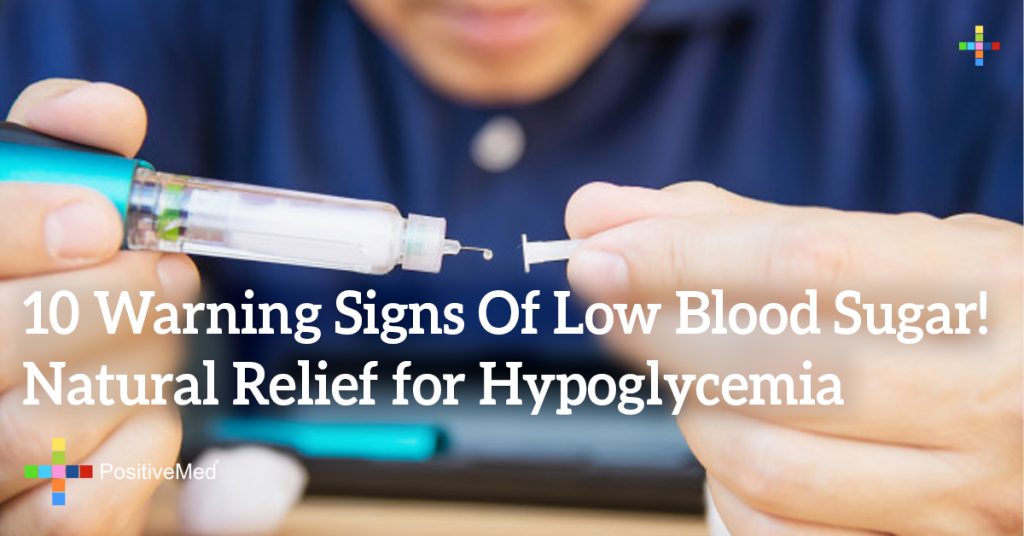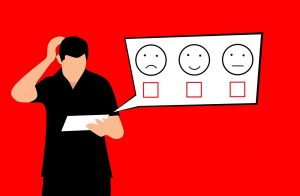
[nextpage title=”…”]
10 Warning Signs Of Low Blood Sugar! Natural Relief for Hypoglycemia
Hypoglycemia is a condition where blood glucose levels fall dangerously low and it affects mostly people suffering with diabetes. When blood sugar levels fall too drastically due to efficient uptake of insulin, fasting, alcohol consumption, or other factors, the diabetic will need to immediately raise their blood sugar to avoid painful consequence including coma, unconsciousness, or seizure. There are natural strategies that can be followed to prevent hypoglycemic reactions.
Hypoglycemia is triggered by biological and environmental factors. It is most prevalent in diabetics, which is almost 10 percent of the population in the United States. There are other health complications that also cause hypoglycemia although most triggers are diabetes dependent.
Who does Hypoglycemia Affect?
Diabetics often have hypoglycemia and almost ten percent of the population in the United States is diagnosed with diabetes. There are millions who are undiagnosed but living with diabetes and concomitantly hypoglycemia. Other segments of the population who struggle with hypoglycemia include those with enzyme or hormone deficiencies, as a side effect of medications, or from a rare tumor condition in the pancreas, which results in an overproduction of insulin.
RELATED ARTICLE: 7 Signs Your Blood Sugar Is Out Of Whack
10 Warning Signs You Have Low Blood Sugar:
1. Shaking or trembling
2. Cold and sweaty skin
3. Confusion and unclear thoughts
4. Night perspiration and crying out
5. Double vision
6. Slurred speech
7. Loss of consciousness
8. Pale appearance and grayish skin
9. Extreme hunger
10. Emotional instability and/or crankiness
RELATED ARTICLE: Foods that Can Purify Blood Naturally
Triggers for Hypoglycemia
A definition for hypoglycemia is low blood sugar. The glucose in the blood supply has fallen below the levels needed for someone to normally function. Insulin helps the body to deliver much needed glucose to cells. So either a person has elevated insulin levels that are efficiently ridding the blood of glucose or there is a lack of glucose in the first place. There are several triggers for hypoglycemia in diabetics that affect the balance of insulin and glucose in the blood:
1. A new exercise regimen can cause the body to use glucose that normally remains in the blood. Anytime exercise is added to a person’s routine, the body is affected. Although exercise is a healthy lifestyle change, a diabetic person will want to carefully discuss any changes in this regard with his/her healthcare provider. Overdoing the exercise without making other adjustments to diet can trigger hypoglycemia.
2. Medication can either decrease or increase insulin levels resulting in changes to blood sugar.
3. Fasting for a diabetic person can cause the blood sugar to drop dangerously low provoking a hypoglycemic state.
4. Spikes in blood sugar through a diet rich in simple sugars and carbohydrates like cookies, candy, soda, crackers, or other flour based products break down easily and can cause large swings in blood glucose levels. This is a jolt to the body and can cause disruption to the delicate balance between insulin and glucose. A diabetic person may want to carefully follow doctor’s orders when making daily food choices.
[/nextpage] [nextpage title=”…”]
5. Alcohol consumption can affect the liver, which is responsible for freeing up stored glucose and leveling blood sugar naturally. Consuming alcohol without food may cause a worse hypoglycemic reaction.
6. Liver malfunction can trigger hypoglycemia. When the liver is not working glucagon cannot be converted to glucose and the diabetic individual may need additional strategies to keep blood sugar levels on track.
7. Changes in habits are one way that hypoglycemia affects diabetic individuals. Lets say that a person has recently changed dosage of diabetes medication thereby affecting the amount of insulin present and at the same time this person has also decided to walk up several flights of stairs to work to enhance health. The diabetic has just introduced two variables that work against the body in terms of hypoglycemia. It is wise to vet all lifestyle changes through trusted health care professionals before adopting them.
One of the best remedies for minimizing the likelihood of hypoglycemia in diabetic individuals is to consciously plan out and scrutinize meals with a dietitian or doctor. Meals that are built more on complex carbohydrates won’t flood the bloodstream with glucose and may allow the diabetic individual to feel better. There are many side unpleasant side affects with hypoglycemia that may be avoided through diets rich in legumes, nuts, seeds, and high fiber vegetables. These foods help a person to maintain blood sugar levels that are more steady and reliable.
Non-Diabetic Triggers:
1. There is a rare condition where a tumor forms in the pancreas thereby causing an overproduction of insulin. Too much insulin present in the blood directs excess blood sugar to the cells in a very efficient manner and leaves the body with a lowered state of blood sugar leading to hypoglycemia.
2. Enlargement of beta cells in the pancreas can lead to increased insulin production and reduction of available glucose in the blood l hypoglycemia.
3. Hormone and enzyme disorders that affect the balance of insulin in the blood.
RELATED ARTICLE: Blood Sugars, High or Low?
Foods that Aggravate Hypoglycemia
Any food rich in simple carbohydrates like cookies, cakes, candy, sodas, and crackers break down easily into glucose and cause spikes in insulin levels. This is a jolt to the body and upsets the balance between insulin and glucose. It is not a way to eat especially for someone who struggles with diabetes.
Natural Remedies for Low Blood Sugar
One of the best remedies for minimizing the likelihood of hypoglycemia is for a diabetic to enjoy meals filled with carbohydrates that are complex and that don’t flood the bloodstream with glucose. Diets rich in legumes, nuts, seeds, and high fiber vegetables help a person to maintain blood sugar levels that are more reliable and steady thereby decreasing negative side effects including hypoglycemia.
[/nextpage]





